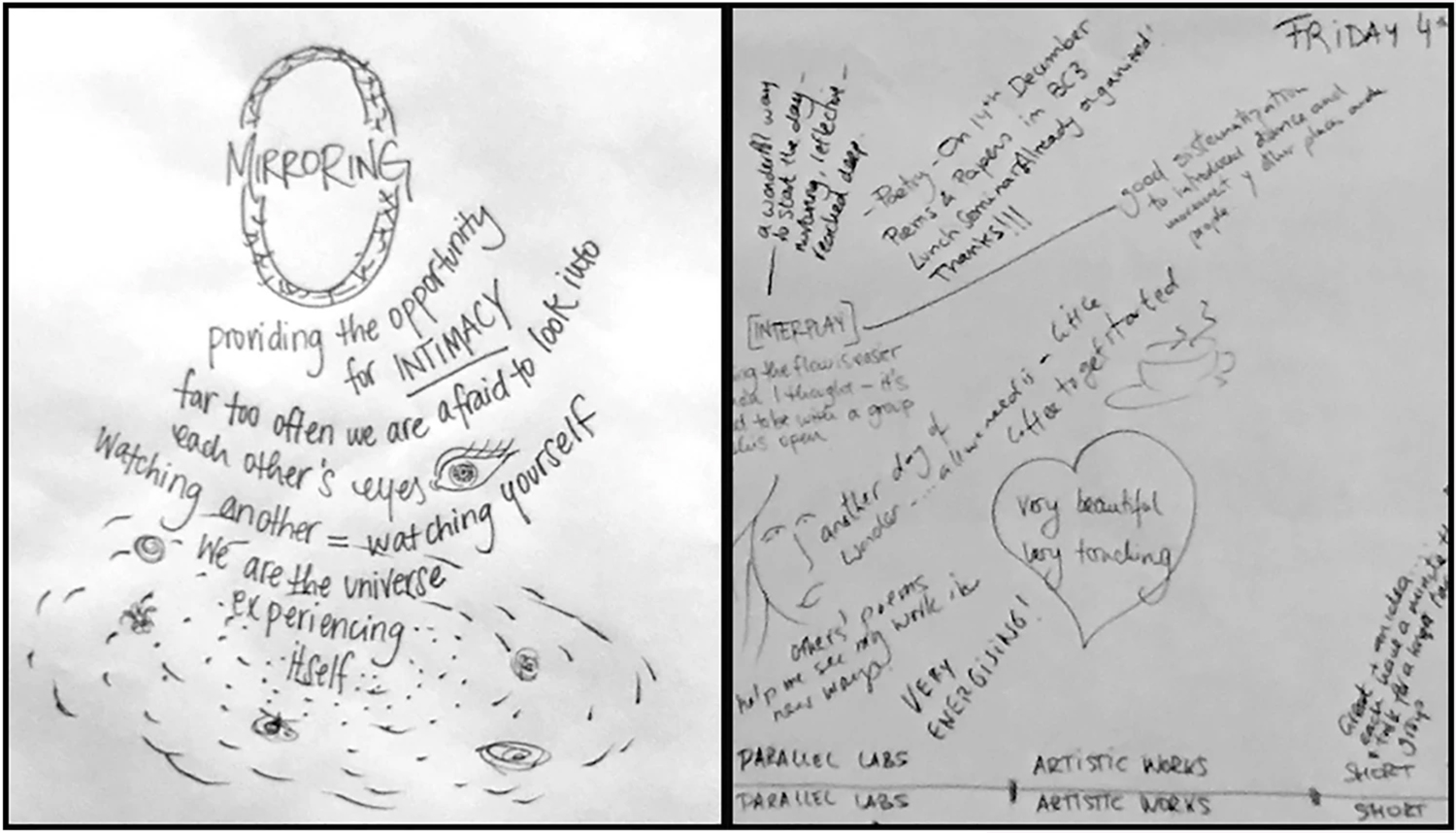In November 2016, a two-day arts-based workshop was held in Barcelona to promote the arts in sustainability research. The workshop was possible due to the sponsorship and collaboration of many different universities, and 43 participants from nine countries (Spain, Portugal, UK, Germany, USA, Sweden, Netherlands, Belgium, Japan/Norway and Chile) attended. 17 of the participants identified mainly as researchers, approaching topics of sustainability from diverse backgrounds (including the environmental sciences, social sciences, and humanities); 14 as artists (including audio- visual artists, plastic artists, and narrative artists working with poetry and storytelling; and five identified as practitioners, working on sustainability-related issues in the industry.

A participant’s purpose for the workshop, as written in their “life-jacket.” María Heras et al., “Realising potentials for arts-based sustainability science,” 1881.
Throughout the two days, participants were involved in eight interactive laboratories involving artistic expressions (theatre, dance, performance, storytelling, poetry, visual arts) to integrate arts and sustainability science. The labs included the presentation of 12 artistic works, five short talks, a keynote conference, and a social event with dance, poetry performance, and open mics. Each day ended with a final reflection session, where participants could share their insights. In the first day, this evolved as a collaborative mandala creation.

From top to bottom: movement and voice performance by Seshen Arts, presentation of the Guerilla Beehive by Anne Marie Maes, mandala collective creation guided by Circles of Seeds, and presentation of paintings from Tanzanian local artist, by Emma Li Johansson. Photos: David Tarrasón. María Heras et al., “Realising potentials for arts-based sustainability science,” 1880.
Overall, the workshop results support the literature that affirms art’s role to facilitate the analysis and communication of complex socio-ecological topics. For example, participants felt that the fine art exhibition session allowed them to transgress conventional forms of communication and create new means of awareness-raising. They reported feeling a sense of trust and connection with fellow participants; the experiences moved ‘from dialogue to real engagement’ through working collaboratively and without judgement. This kind of atmosphere is great for enabling what the workshop organisers called “deep listening, resonance, mutual learning, and affect.”[1] The arts-based exercises in the workshop also revealed their ability to support diverse voices and encourage inclusivity into research.

Collective mural gathering participants reactions and reflections during the workshop. María Heras et al., “Realising potentials for arts-based sustainability science,” 1879.
[1] María Heras et al., “Realising potentials for arts-based sustainability science,” 1882.
María Heras, Diego Galafassi, Elisa Oteros-Rozas, Federica Ravera, Luis Berraquero-Díaz, and Isabel Ruiz-Mallén. “Realising potentials for arts-based sustainability science.”Sustainability Science Vol. 16 (2021): 1875–1889. https://link.springer.com/article/10.1007/s11625-021-01002-0
